核心的概念
Netty的异步事件驱动模型主要涉及到下面几个核心的概念:
- Channel:表示一个与socket关联的通道
- ChannelPipeline: 管道,一个Channel拥有一个ChannelPipeline,ChannelPipeline维护着一个处理链(严格的说是两个:upstream、downstream),处理链是由很多处理句柄ChannelHandler所构成,每个ChannelHandler处理完以后会传递给链中的下一个处理句柄继续处理。
- ChannelHandler:处理句柄,用户可以定义自己的处理句柄来处理每个请求,或发出请求前进行预处理,典型的有编码/解码器:decoder、encoder。
- ChannelEvent:事件,是整个模型的处理对象,当产生或触发(fire)一个事件时,该事件会沿着ChannelPipeline处理链依次被处理。
- ChannelFuture: 异步结果,这个是异步事件处理的关键,当一个事件被处理时,可以直接以ChannelFuture的形式直接返回,不用在当前操作中被阻塞。可以通过 ChannelFuture得到最终的执行结果,具体的做法是在ChannelFuture添加监听器listener,当操作最终被执行完 后,listener会被触发,我们可以在listener的回调函数中预定义我们的业务代码。
- EventLoopGroup:事件循环组,
- EventExecutorGroup(接口):继承自java并发包ScheduledExecutorService,执行定时任务,只要使用其
next()方法 - BootStrap:启动辅助类,
Channel

ChannelPipeline
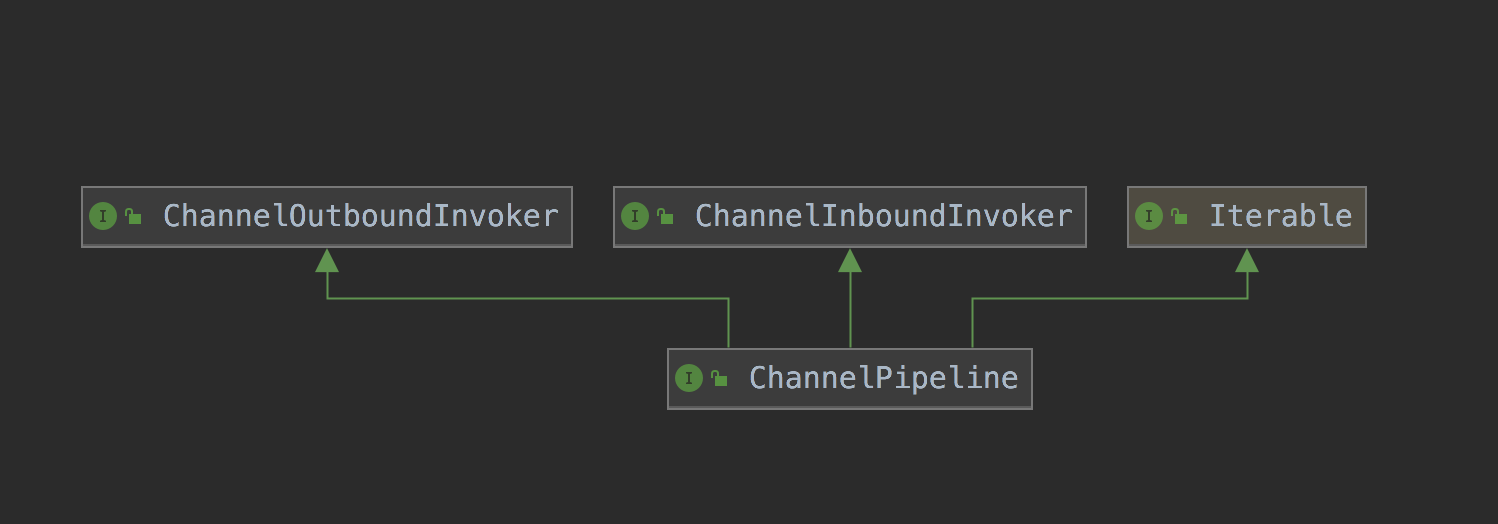
ChannelFuture && ChannelPromise
- ChannelFuture: The result of an asynchronous
ChannelI/O operation. - ChannelPromise: Special
ChannelFuturewhich is writable.
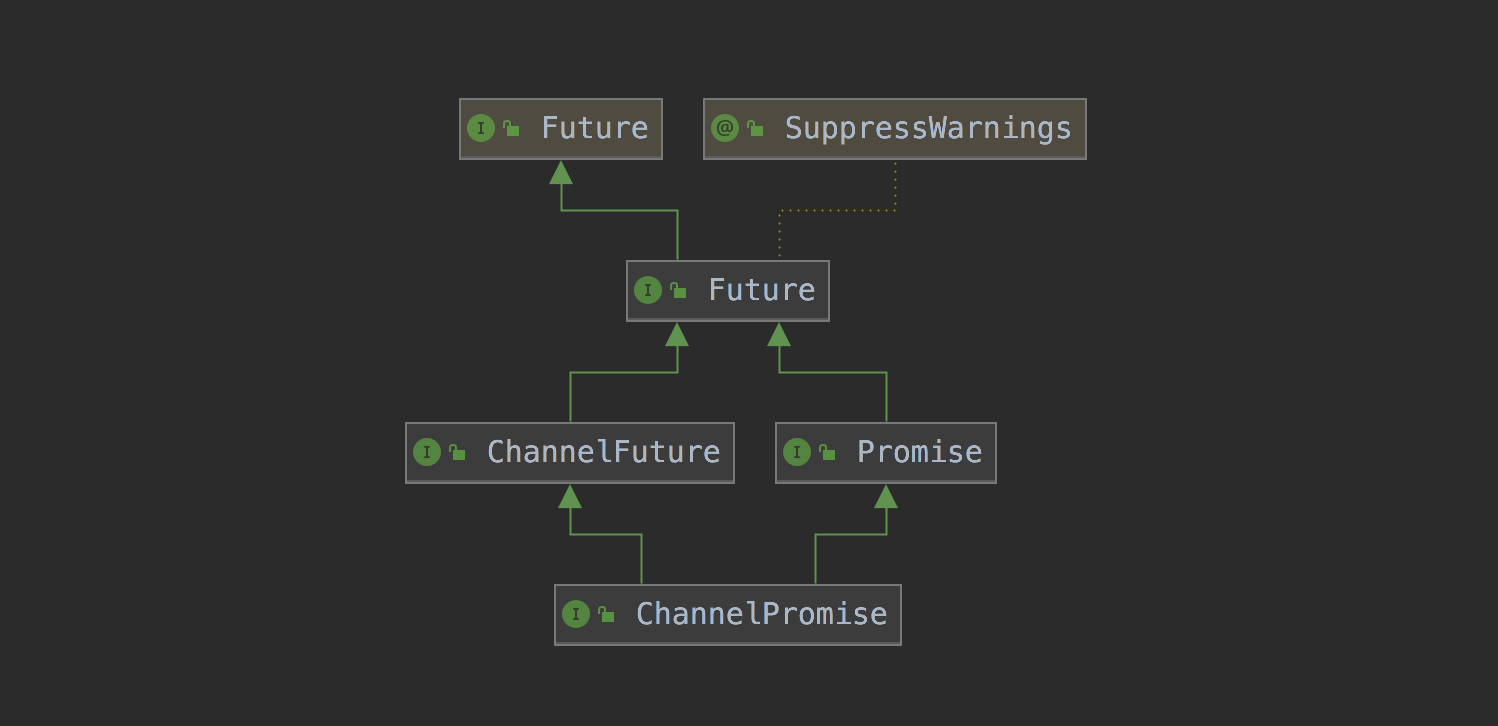
NioEventLoop.png
- EventExecutorGroup: The EventExecutorGroup is responsible for providing the EventExecutor’s to use via its next() method. Besides this, it is also responsible for handling their life-cycle and allows shutting them down in a global fashion.
- EventExecutor: The EventExecutor is a special EventExecutorGroup which comes with some handy methods to see if a Thread is executed in a event loop. Besides this, it also extends the EventExecutorGroup to allow for a generic way to access methods.
- EventLoopGroup: Special EventExecutorGroup which allows registering Channels that get processed for later selection during the event loop.
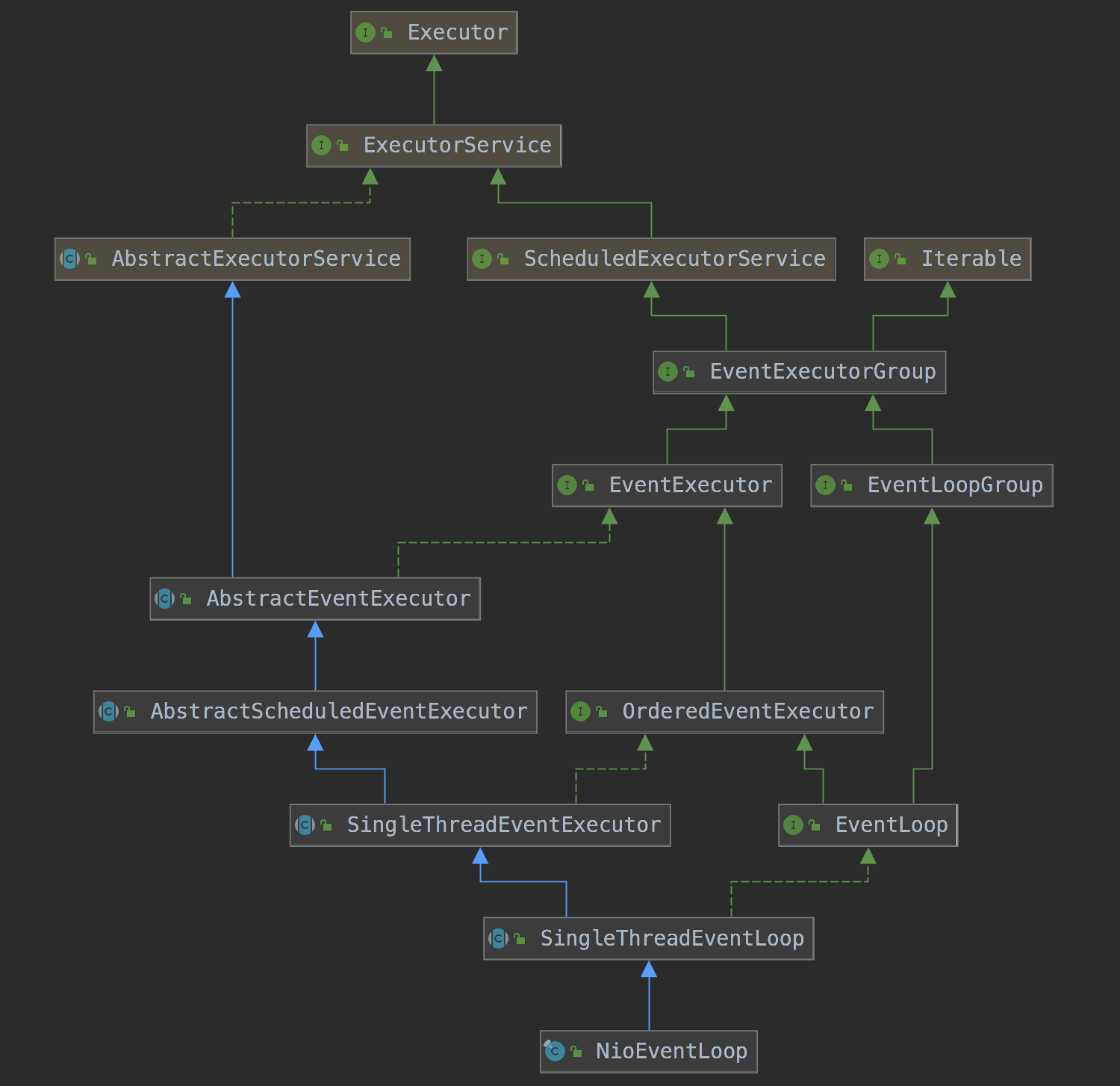
NioEventLoopGroup
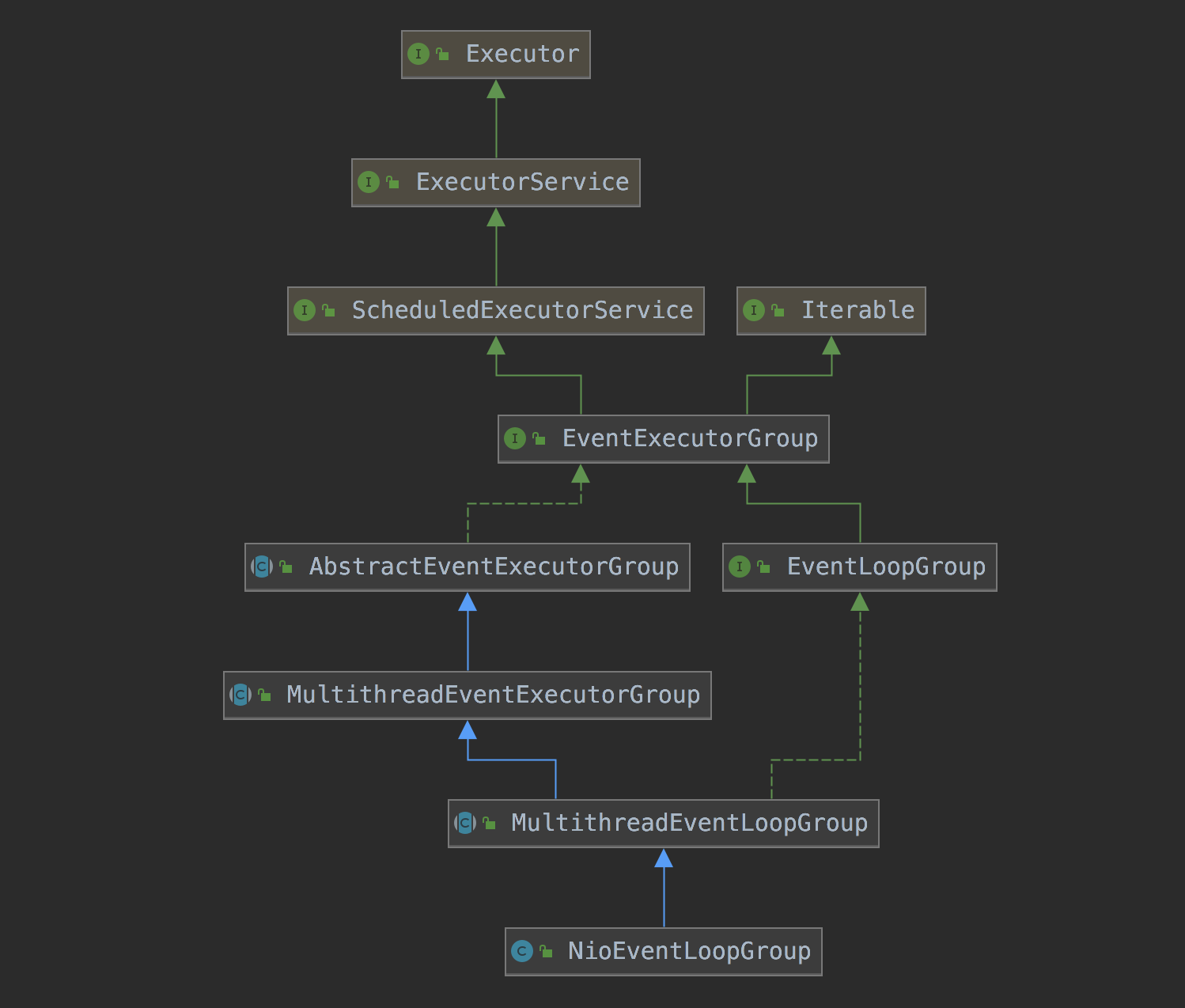
SimpleChannelInboundHandler
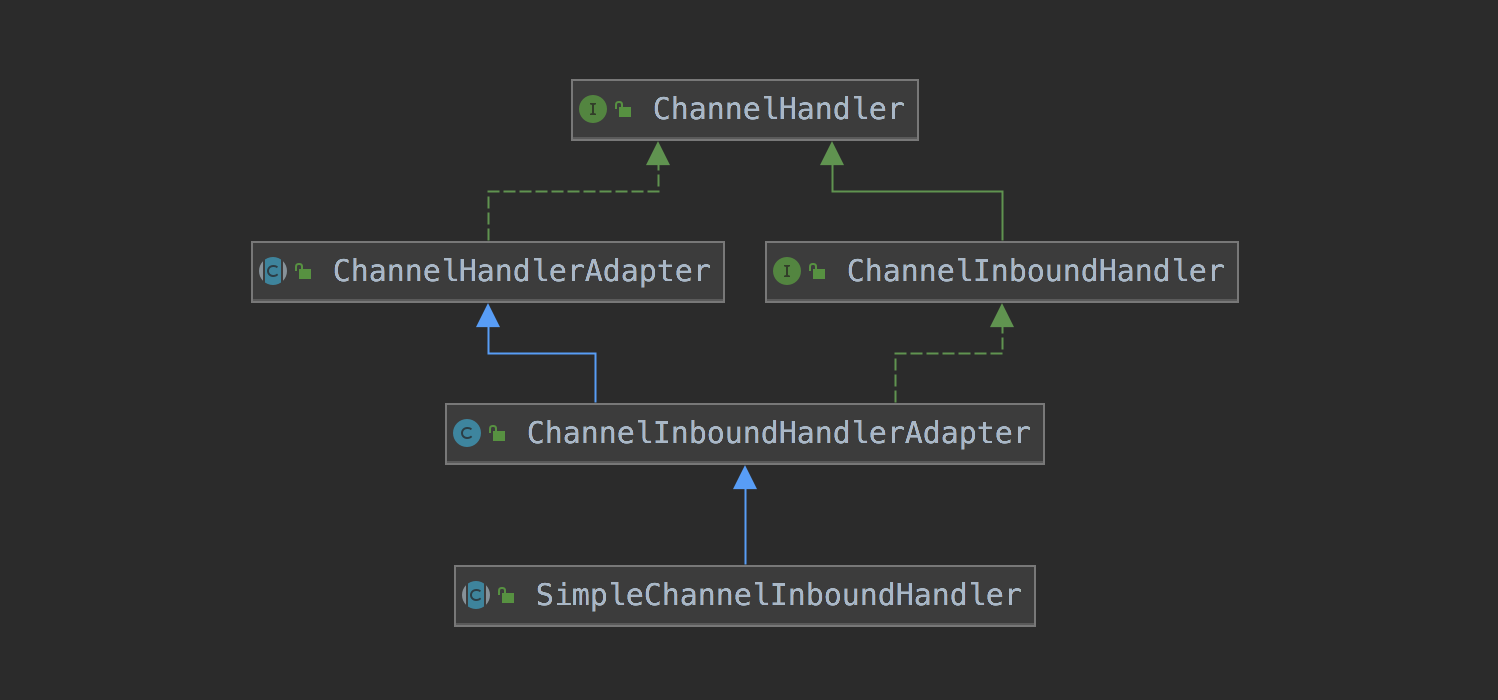
参考资料
文档信息
- 本文作者:Bob.Zhu
- 本文链接:https://adolphor.github.io/2020/03/12/netty-main-class/
- 版权声明:自由转载-非商用-非衍生-保持署名(创意共享3.0许可证)
